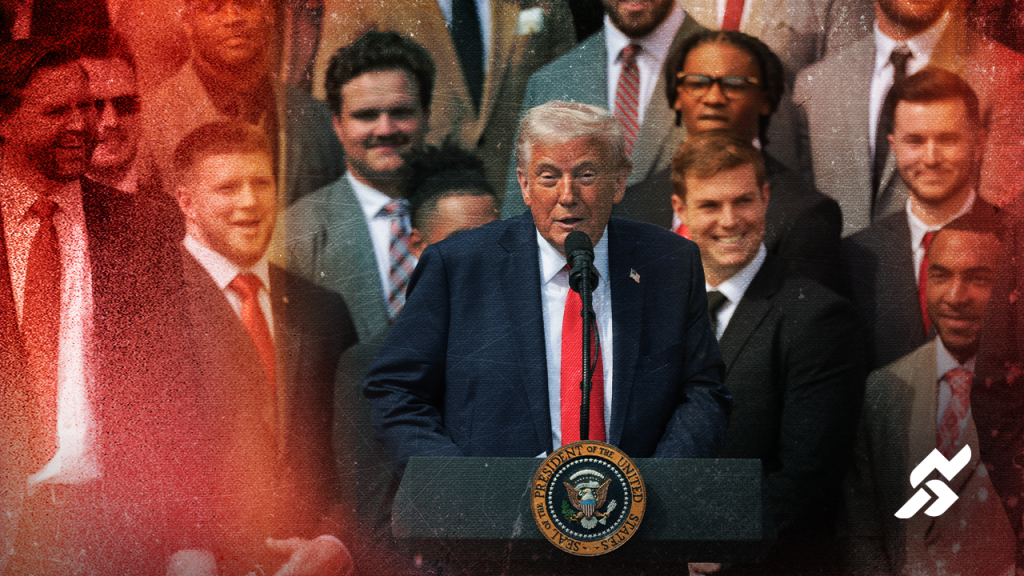As the Commodity Futures Trading Commission (CFTC) faces the prospect of additional regulatory duties involving new sports prediction markets, the federal agency’s whistleblower program may be in peril. That concern compounds the CFTC’s broad enforcement limitations, which also include a depleted staff and White House mandate to reduce punitive actions.
Public records released by the CFTC this week provide an update of the program’s budget outlook after years of warnings about a funding lapse. A 2025 state-of-play overview compiled by the CFTC says the whistleblower program is still “under financial strain” and suggests this could be the year it shutters.
The whistleblower office accounts for 40% of the disciplinary action by the CFTC’s division of enforcement, such as when a whistleblower flagged alleged Deutsche Bank AG interest rate manipulation, leading to an $800 million CFTC sanction on the financial firm in 2015.
The continuing resolution bill in March gave the whistleblower office short-term emergency funds—but that fix expires Sept. 30.
“The Whistleblower Office forecasts that anticipated award payments in 2025 will far exceed the balance of the fund,” the state-of-play document says. “If and when the fund is exhausted, the CFTC will not be able to support the operations of its whistleblower office and staff. This outcome would have significantly negative effects on the CFTC enforcement program.”
Barring Congressional funding intervention after Sept. 30, the program’s money will again come exclusively from the civil financial penalties it levies. That could spell trouble. As outlined in the Dodd-Frank Act, once its balance surpasses $100 million in cash from sanctions, it can no longer add any funds, which are needed not only to provide whistleblower rewards but also to pay whistleblower office staff.
This leaves the whistleblower program in constant danger of being a victim of its own success, as handing out a massive single-event sanction could force a whistleblower payment it can’t afford. By law, whistleblowers receive 10-30% of sanctions.
Moreover, the office faces growing burdens. In fiscal year 2024, the whistleblower program received a record-high 1,744 tips, though only a small percentage of those submissions resulted in payouts. It levied sanctions of about $162 million, and an unknown number of payouts.
A CFTC spokesperson said in a phone call Thursday that as of Aug. 14, the whistleblower office remains in full operation. It is “vulnerable” because of the funding cap, the official said, but it is not under “existential threat” from an active enforcement case and should be fine at least until Sept. 30.
“If we pay out an award that depletes the fund entirely, then we don’t have sufficient resources to pay the staff,” the official said.
Watchdog organizations have warned of dire potential consequences if the whistleblower program ends. “It’s about upholding the principles of accountability and transparency that are the foundation of our financial system,” wrote Cantrell Dumas, director of Better Markets, in November 2024.
The precarious state of the whistleblower program comes as the CFTC may be on the verge of drastic changes elsewhere that carry additional enforcement ramifications.
Prediction market companies such as Kalshi insist they should operate under the watch of the federal agency rather than state gaming regulators, breaking with the CFTC’s history of forbidding sports event contracts.
As Sportico has written, the CFTC’s leadership ranks are depleted, hindering its ability to take action. Only two of its five commissioner slots are filled—and the pair of remaining members, interim chair Caroline Pham and commissioner Kristin Johnson, intend to depart this year.
Pham, who said she will go to the private sector once the Senate confirms a permanent replacement, has aimed to narrow the scope of the CFTC’s enforcement strategy. In an April statement, the Republican commissioner said the CFTC’s enforcement arm has previously engaged in “lawfare” that undercut “American competitiveness.”
This stance keeps with President Donald Trump’s anti-regulation approach to financial markets, which included a 180-day pause of enforcing an anti-bribery law, the Foreign Corrupt Practices Act.
As part of Pham’s push to end “regulation by enforcement,” she has emphasized self-reporting from companies, dangling the incentive of more lenient handling of cases in which firms proactively let the CFTC know about potential wrongdoing. This is a separate avenue from the traditional reliance on whistleblowers.
“It will enable the CFTC to do more with less,” Pham said.
Trump’s administration has promoted cost-cutting measures in some sectors of the federal government. Reuters reported last month that the CFTC had fired two dozen workers from its enforcement, market oversight, administration and data divisions.
Still, U.S. sports prediction market platforms such as Kalshi, Crypto.com and, in the near future, Polymarket, insist CFTC oversight is sufficient despite the agency never dealing with the product type before this year. The CFTC is also likely to pick up new responsibilities overseeing cryptocurrency companies, another Trump priority.
Kalshi’s website assures users the CFTC provides “numerous benefits and protections,” including “safeguards against fraud and manipulation, protecting your investments.”
In recent weeks, The Closing Line newsletter has obtained and published public records that appear to show Brian Quintenz, a Kalshi board member and Trump’s nominee to chair the CFTC, seeking non-public information about Kalshi’s competitors. Quintenz’s nomination is now on hold—with those disclosures reportedly a factor in the pause—creating even more uncertainty for the future of agency leadership. Kalshi has not responded to multiple requests for comment about Quintenz.
Like Pham, Quintenz supports a permissive approach to sports prediction markets, with oversight enabled by the federal CFTC rather than their legality being determined by individual states.

